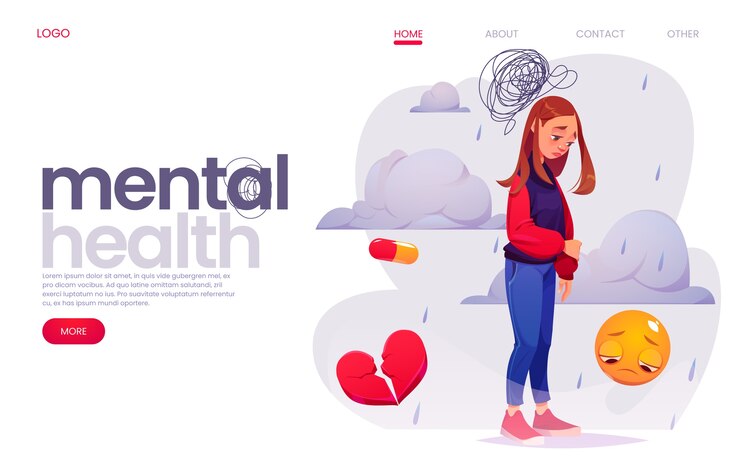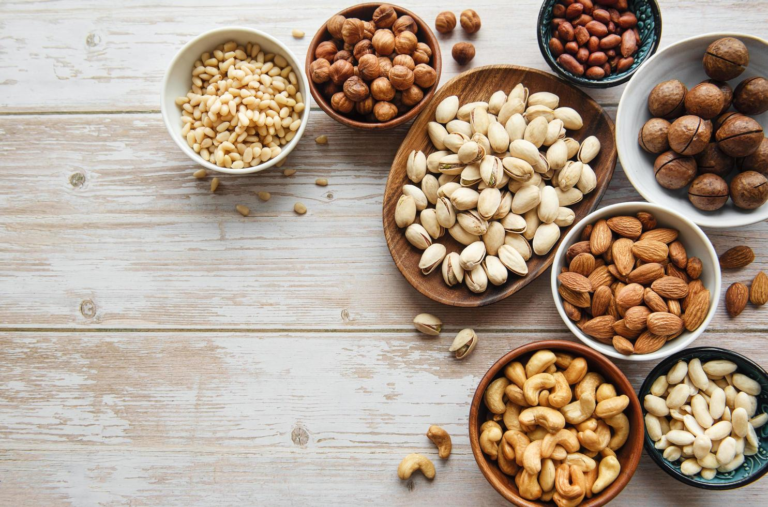Navigating the Emotional Impact of C19: Tips for Mental Well-being
In these unprecedented times, the global pandemic known as C19 has undoubtedly had a profound impact on our lives. From adjusting to new routines and isolation measures to dealing with anxiety and uncertainty, it’s no surprise that our mental well-being may be facing some challenges. But fear not! In this blog post, we’ll explore practical strategies and expert advice to help you prioritize your mental health during these trying times. Whether you’re looking for tips on managing stress, seeking professional help, finding meaning in uncertain times, staying connected with others, or practicing mindfulness and gratitude – we’ve got you covered. So let’s dive in together and discover how to navigate the emotional impact of C19 with resilience and grace.
Understanding the Emotional Impact of C19
The emotional impact of C19 cannot be underestimated. The sudden changes in our daily lives, the fear of contracting the virus, and the overwhelming amount of information can take a toll on our mental well-being. Many individuals may experience heightened anxiety, stress, and feelings of loneliness or isolation. Uncertainty about the future can also contribute to a sense of unease. It’s important to recognize that these emotions are valid and normal given the circumstances we find ourselves in.
It’s crucial to acknowledge that everyone responds differently to stressful situations, so it’s essential not to compare your own reactions with others’. Some individuals may feel overwhelmed and anxious while others might experience a sense of sadness or loss. By understanding and accepting our own emotional responses, we can begin to address them effectively and work towards maintaining good mental health during this challenging time.
Prioritizing Mental Well-being
In the midst of the C19 pandemic, it is crucial to prioritize our mental well-being. The uncertainty and challenges posed by this situation can take a toll on our emotional health. To navigate these difficult times, we must make self-care a priority.
First and foremost, it is important to acknowledge and validate our emotions. It’s okay to feel overwhelmed or anxious during these unprecedented times. Give yourself permission to experience these feelings without judgment. Remember that taking care of your mental health is just as important as physical well-being.
Next, find healthy ways to cope with stress and anxiety. Engage in activities that bring you joy and relaxation. This could be practicing mindfulness exercises, engaging in creative outlets like painting or writing, or simply spending time outdoors in nature.
Remember, there is no one-size-fits-all approach to self-care – what works for one person may not work for another. Explore different strategies until you find what resonates with you personally.
By prioritizing your mental well-being during C19, you are investing in your overall health and quality of life. Take the time to nurture yourself emotionally so that you can face the challenges ahead with resilience and strength.
Self-Care Strategies for Coping with C19
In these challenging times, taking care of our mental well-being is more important than ever. Here are some self-care strategies to help you navigate the emotional impact of C19:
It’s crucial to connect with your support systems. Reach out to friends and family members who can provide a listening ear or offer advice. They may be experiencing similar emotions and can provide valuable insights.
Managing anxiety and stress is essential for maintaining mental well-being. Find activities that help you relax and unwind, such as deep breathing exercises or meditation. Engaging in regular physical activity is also beneficial for reducing stress levels.
Maintaining a healthy routine can also contribute to your overall well-being during this time. Establishing a daily schedule that includes time for work or study, exercise, relaxation, and hobbies can give you a sense of structure and purpose.
Remember, practicing self-care is an ongoing process that requires patience and persistence. By prioritizing your mental health needs and implementing these strategies into your daily life, you’ll be better equipped to cope with the emotional impact of C19.
Connecting with Support Systems
Connecting with support systems is crucial for our mental well-being during these challenging times. While physical distancing may make it difficult to connect in person, there are still ways to reach out and seek support.
Lean on your existing relationships – friends, family members, or colleagues who can provide emotional support and a listening ear. It’s important to communicate openly about your feelings and concerns. Additionally, consider joining virtual support groups or online communities where you can connect with others who are going through similar experiences. Remember, you don’t have to face this alone! Reach out and build a strong network of supportive individuals who can help navigate the emotional impact of C19 together.
Managing Anxiety and Stress
With the ongoing challenges of C19, it’s normal to feel anxious and stressed. The uncertainty surrounding the virus can take a toll on our mental well-being. However, there are strategies you can implement to help manage these emotions.
It’s important to acknowledge your feelings and give yourself permission to experience them. Allow yourself moments of vulnerability without judgment. Find healthy coping mechanisms that work for you. This could include deep breathing exercises, meditation, or engaging in activities that bring you joy and relaxation. Remember to prioritize self-care and be kind to yourself during this time of uncertainty.
Maintaining a Healthy Routine
Maintaining a healthy routine is crucial during these challenging times. With the disruption caused by C19, it’s easy to fall into an unstructured and chaotic lifestyle. However, establishing a daily routine can provide a sense of stability and control.
Prioritize sleep and wake up at consistent times each day. This helps regulate your body’s internal clock and promotes better overall well-being. Incorporate regular exercise into your routine. Whether it’s going for walks or following online workout videos, staying physically active not only boosts your mood but also enhances your immune system.
Additionally, make sure to schedule dedicated time for self-care activities such as meditation or hobbies that bring you joy. Set aside specific blocks for work or study to maintain productivity levels while working from home or engaging in remote learning.
Remember that maintaining a healthy routine is about finding balance and creating structure in your life amidst uncertainty. By doing so, you can better manage stress levels and improve your mental well-being during these challenging times
Seeking Professional Help
Recognizing When to Reach Out and During these challenging times, it’s important to recognize when you may need additional support. If you find that your mental well-being is significantly impacted by C19 and you’re struggling to cope on your own, seeking professional help can be a crucial step towards finding relief. Therapists and counselors are trained to provide guidance and support tailored to your specific needs.
Remember, reaching out for professional help doesn’t mean there’s something wrong with you. It takes strength and self-awareness to acknowledge when you need assistance. A therapist or counselor can offer a safe space where you can openly express your feelings, fears, and concerns without judgment. They can also provide valuable tools and strategies for managing stress, anxiety, or any other emotional challenges brought about by the pandemic.
Recognizing When to Reach Out
During these uncertain times, it’s important to be aware of your own mental health and know when it’s time to seek professional help. While it’s normal to experience stress and anxiety in the face of C19, there are certain signs that may indicate a need for additional support.
Pay attention to changes in your mood or behavior. If you find yourself feeling constantly overwhelmed, irritable, or withdrawn from activities you once enjoyed, it may be a sign that you could benefit from talking to a therapist or counselor. Additionally, if your sleep patterns have changed significantly or if you’re experiencing physical symptoms like headaches or muscle tension, reaching out for help is crucial.
Remember that seeking professional assistance is not a sign of weakness but rather an acknowledgement of your own well-being. It takes strength and courage to ask for help when needed. So don’t hesitate to reach out if you feel like the emotional impact of C19 is becoming too much for you to handle on your own. There are resources available and professionals who can provide guidance and support during this challenging time.
Finding Therapeutic Support
In times of uncertainty and stress, seeking therapeutic support can be a crucial step towards maintaining our mental well-being. Whether you’re facing heightened anxiety or struggling with the emotional impact of C19, professional help can provide invaluable guidance and tools for managing these challenges.
Therapeutic support comes in various forms, such as individual counseling or therapy sessions. These sessions offer a safe space to discuss your concerns, explore your emotions, and develop coping strategies tailored to your specific needs. A trained therapist can provide practical techniques to navigate through difficult emotions and empower you on your journey toward healing and resilience. Remember, reaching out for professional help is not a sign of weakness; it’s an act of self-care that demonstrates strength and a commitment to prioritizing your mental health.
Finding Meaning and Purpose in Uncertain Times
In these uncertain times, finding meaning and purpose can feel like an elusive quest. However, it is during challenging moments that the search for meaning becomes even more vital. Cultivating resilience and adaptability is essential in navigating the uncertainties of C19. By embracing change and seeking opportunities for personal growth, we can find a sense of purpose amidst the chaos.
One way to discover meaning is by exploring new hobbies and interests. With more time spent at home, now is an excellent opportunity to delve into activities you’ve always wanted to try but never had the chance. Whether it’s painting, writing, cooking, or learning a musical instrument – engaging in creative pursuits allows us to tap into our passions and talents while providing a sense of fulfillment.
Additionally, finding meaning can also be achieved by focusing on self-reflection and introspection. Take this time as an opportunity for deep inner work – reassessing your values, setting goals that align with them, and envisioning what you want your life to look like post-C19. Remember that meaning doesn’t have to come from external sources; sometimes it emerges when we reconnect with ourselves on a deeper level.
By actively seeking out purpose in these uncertain times through personal growth endeavors and self-reflection practices, you can navigate C19 with greater resilience and find solace in knowing that there are still meaningful experiences waiting to be discovered amid the chaos.
Cultivating Resilience and Adaptability
In times of uncertainty, cultivating resilience and adaptability is essential to navigate the challenges brought about by C19. Resilience allows us to bounce back from setbacks and overcome adversity, while adaptability enables us to adjust our mindset and approach as circumstances change.
To cultivate resilience, it’s important to focus on building a strong support system that includes friends, family, or professionals who can provide guidance and emotional support. Additionally, practicing self-care activities such as exercise, meditation, or engaging in hobbies can help build mental strength.
Adaptability involves being open-minded and flexible in our thinking. It means embracing change instead of resisting it and finding creative solutions when faced with obstacles. By developing these qualities during challenging times like C19, we become better equipped to handle future uncertainties with confidence and grace.
Exploring New Hobbies and Interests
Sometimes, amidst the challenges and uncertainty brought on by C19, it can be helpful to explore new hobbies and interests. Engaging in activities that bring joy and fulfillment can provide a much-needed escape from the stress of daily life. Whether it’s painting, cooking, gardening, or learning a musical instrument, there are countless possibilities waiting to be discovered.
Exploring new hobbies not only helps pass the time but also allows for personal growth and self-discovery. It offers an opportunity to tap into our creativity, learn new skills, and expand our horizons. By stepping outside of our comfort zones and trying something different, we may uncover hidden talents or passions that we never knew existed. So why not take this time as an invitation to embark on a journey of exploration? Who knows what amazing discoveries await us just around the corner!
Staying Connected and Building Relationships
In these challenging times, staying connected with others is more important than ever. While physical distancing measures may have limited in-person interactions, there are still many ways to nurture relationships and build new connections. Reach out to friends and family through phone calls or video chats for a virtual coffee date or game night. Share your thoughts and feelings, laugh together, and offer support during this difficult period.
Additionally, take advantage of the online platforms available to connect with like-minded individuals who share your interests or hobbies. Join virtual communities or forums where you can engage in meaningful discussions or collaborate on projects. Building supportive networks not only helps combat feelings of isolation but also provides opportunities for personal growth and learning from others’ experiences. Remember that even amidst C19, relationships are vital for our well-being – so reach out, connect, and foster those valuable connections!
Nurturing Existing Social Connections
In these challenging times, nurturing our existing social connections has become more important than ever. While physical distancing measures may keep us physically apart, it doesn’t mean we have to be socially isolated. Reach out to your loved ones through phone calls, video chats, or even handwritten letters. Take the time to catch up with friends and family members, sharing laughs and memories that can help alleviate feelings of loneliness or isolation.
Additionally, find creative ways to connect virtually with those who share similar interests or hobbies. Join online communities or participate in virtual events where you can meet new people and engage in meaningful conversations. Remember that social connections are vital for our mental well-being and provide a sense of belonging and support during these uncertain times. Stay connected and let your relationships flourish!
Creating Meaningful Interactions Online
In the midst of C19, staying connected with others has become more crucial than ever. While physical distancing measures may limit our face-to-face interactions, technology provides us with a lifeline to maintain social connections. Embracing virtual platforms allows us to bridge the distance and create meaningful interactions online.
Engaging in video calls, chat groups, and online forums can help foster a sense of community and combat feelings of isolation. Whether it’s catching up with loved ones or connecting with like-minded individuals who share our interests, these digital spaces offer opportunities for connection and support. By actively participating in conversations and sharing experiences, we can forge new relationships that transcend physical boundaries.
Remember that creating meaningful interactions online goes beyond simply exchanging messages or likes on social media. It involves genuine engagement and empathy towards others’ perspectives and emotions. Taking the time to listen attentively, ask thoughtful questions, and express kindness can deepen connections even in virtual settings.
As we navigate through these challenging times together, let’s harness the power of technology to nurture relationships and cultivate a sense of belonging amidst uncertainty
Building Supportive Networks
In these challenging times, it’s more important than ever to build supportive networks. Surrounding yourself with a strong and caring community can provide the emotional support needed to navigate the uncertainties of C19. Reach out to friends, family, and colleagues who uplift your spirits and make you feel connected. Share your thoughts and concerns openly, as they may be experiencing similar emotions.
Additionally, consider joining online communities or forums where you can connect with like-minded individuals facing similar challenges. Building relationships based on shared experiences can create a sense of belonging and understanding. Together, we can lean on each other for support and find solace in knowing that we’re not alone in this journey.
Practicing Mindfulness and Gratitude
In these challenging times, finding moments of peace and gratitude can make a profound difference in our mental well-being. Practicing mindfulness allows us to be fully present in the moment, letting go of worries about the past or future. Taking a few minutes each day to focus on our breath or engage in simple meditation exercises can help calm the mind and reduce stress levels.
Gratitude is another powerful tool for maintaining emotional resilience. By intentionally noticing and appreciating the positive aspects of our lives, we shift our focus away from negativity and cultivate a more optimistic outlook. Whether it’s expressing gratitude for loved ones, nature’s beauty, or even small acts of kindness, acknowledging what we are thankful for can boost our mood and increase feelings of contentment. So let’s take a moment today to practice mindfulness and gratitude – it may just bring us some much-needed peace amidst this uncertainty!
Incorporating Mindfulness into Daily Life
Incorporating mindfulness into daily life can be a powerful tool for navigating the emotional impact of C19. It involves bringing your attention fully to the present moment, without judgment or attachment. One way to practice mindfulness is by incorporating short moments of stillness throughout your day. Take a few deep breaths and notice how your body feels in that moment. Pay attention to the sights, smells, and sounds around you. By grounding yourself in the present moment, you can find calm amidst uncertainty.
Another way to incorporate mindfulness into daily life is through mindful eating. Instead of rushing through meals or mindlessly snacking, take time to savor each bite. Notice the flavors, textures, and sensations as you eat. Engage all your senses and truly experience each mouthful of food. This practice not only helps with digestion but also allows you to cultivate gratitude for nourishment.C19
Cultivating Gratitude and Positive Thinking.
In times of uncertainty, one powerful tool we can harness is the practice of gratitude and positive thinking. It may sound cliché, but focusing on the positives can have a profound impact on our mental well-being.
Incorporating mindfulness into our daily lives allows us to appreciate the present moment and find joy in the small things. Take a few moments each day to reflect on what you are grateful for – whether it’s a beautiful sunset, a supportive friend, or simply having food on your table. By shifting our focus towards positivity, we train our brains to see opportunities rather than obstacles.
Additionally, fostering positive thinking can help reframe challenging situations. Instead of dwelling on what we cannot control during C19, let’s shift our mindset towards finding solutions and adapting to new circumstances. Embrace this time as an opportunity for personal growth and exploration.
Remember that navigating the emotional impact of C19 is unique to each individual. What works for someone else might not work for you – so be kind to yourself throughout this journey. Experiment with different strategies mentioned above until you find what resonates with you personally.
By prioritizing mental well-being through self-care strategies, seeking professional help when needed, finding meaning in uncertain times, staying connected with others while building relationships online or offline and practicing mindfulness and gratitude regularly – we can navigate these challenging times more effectively.







